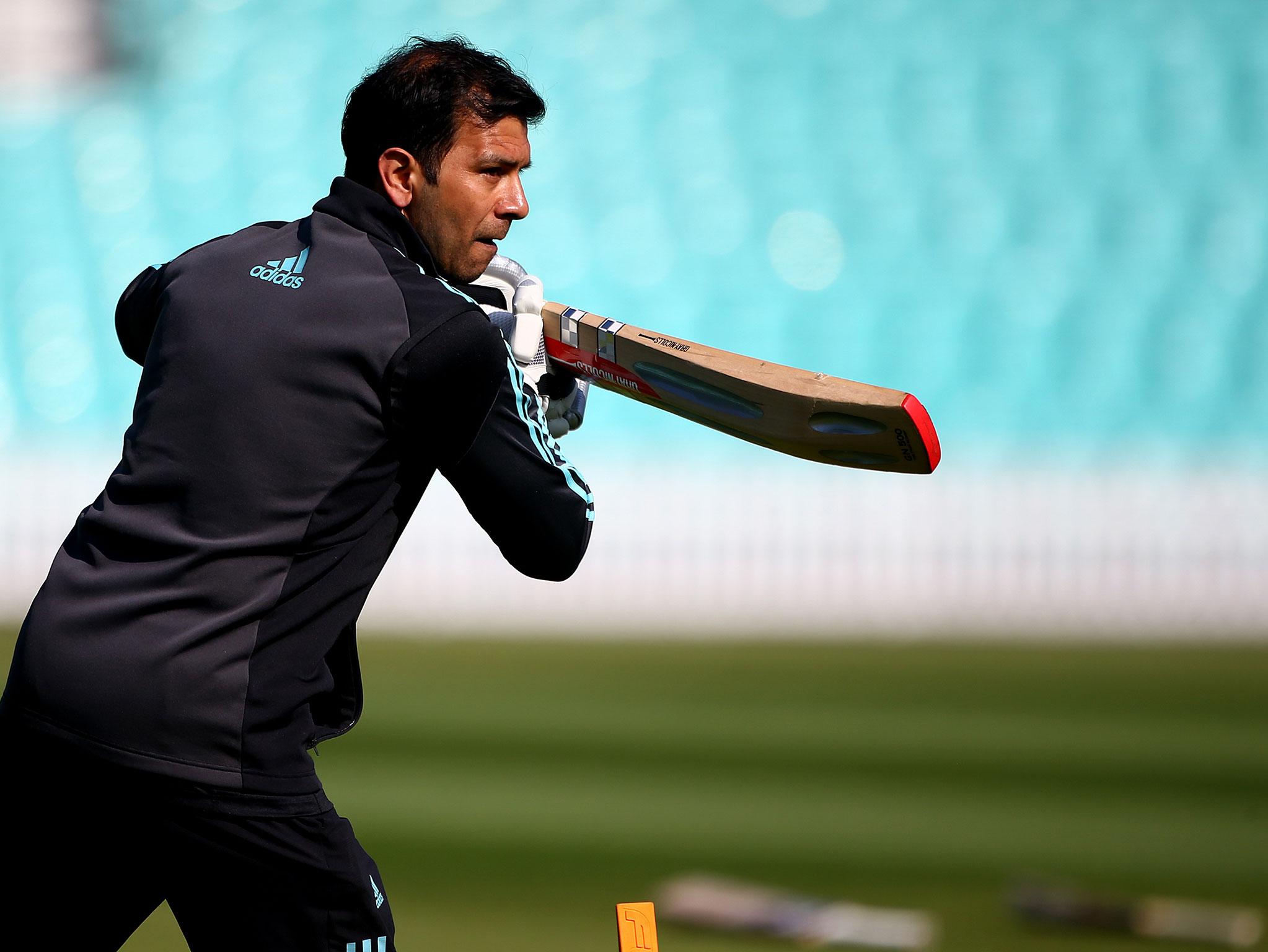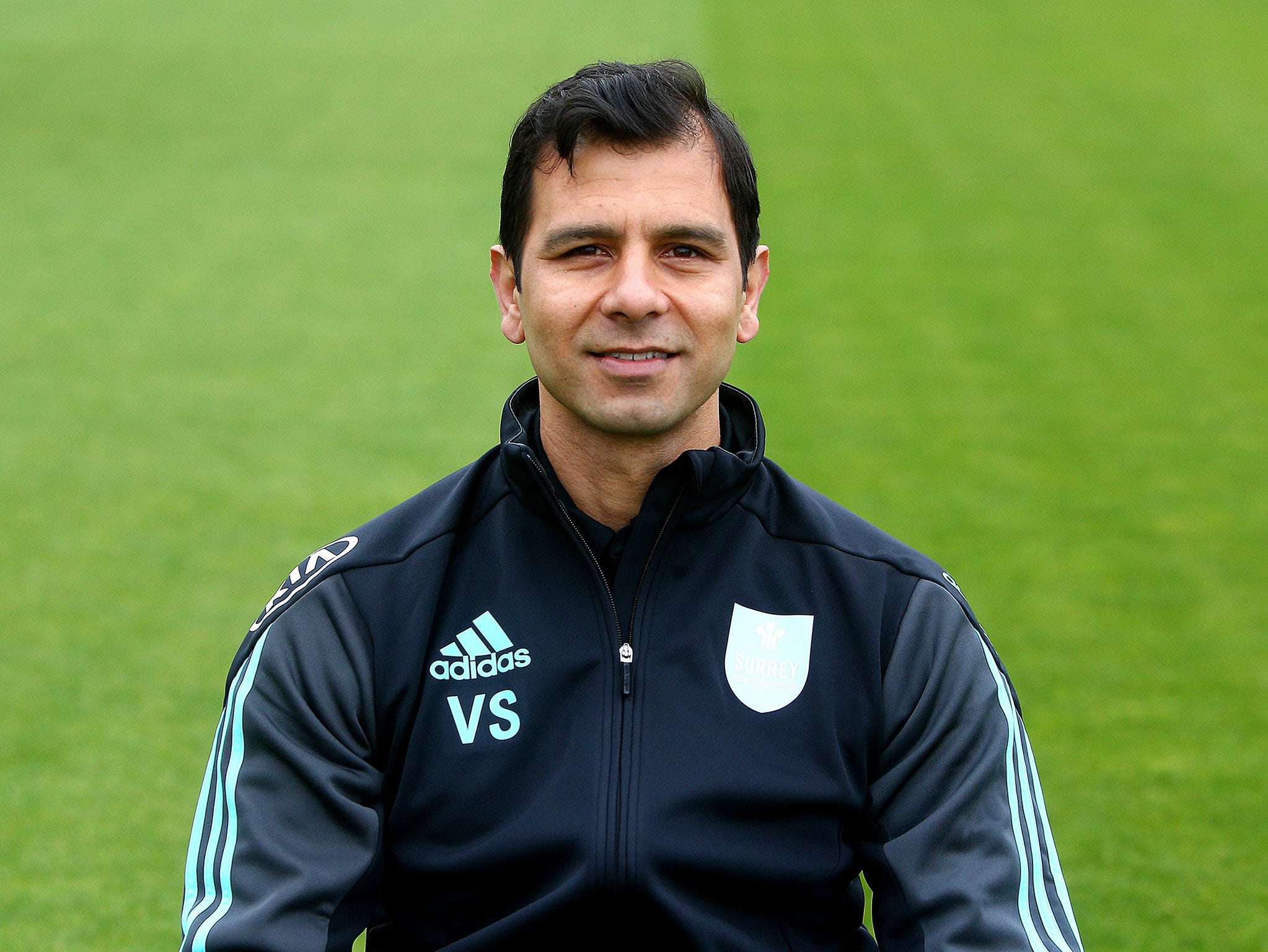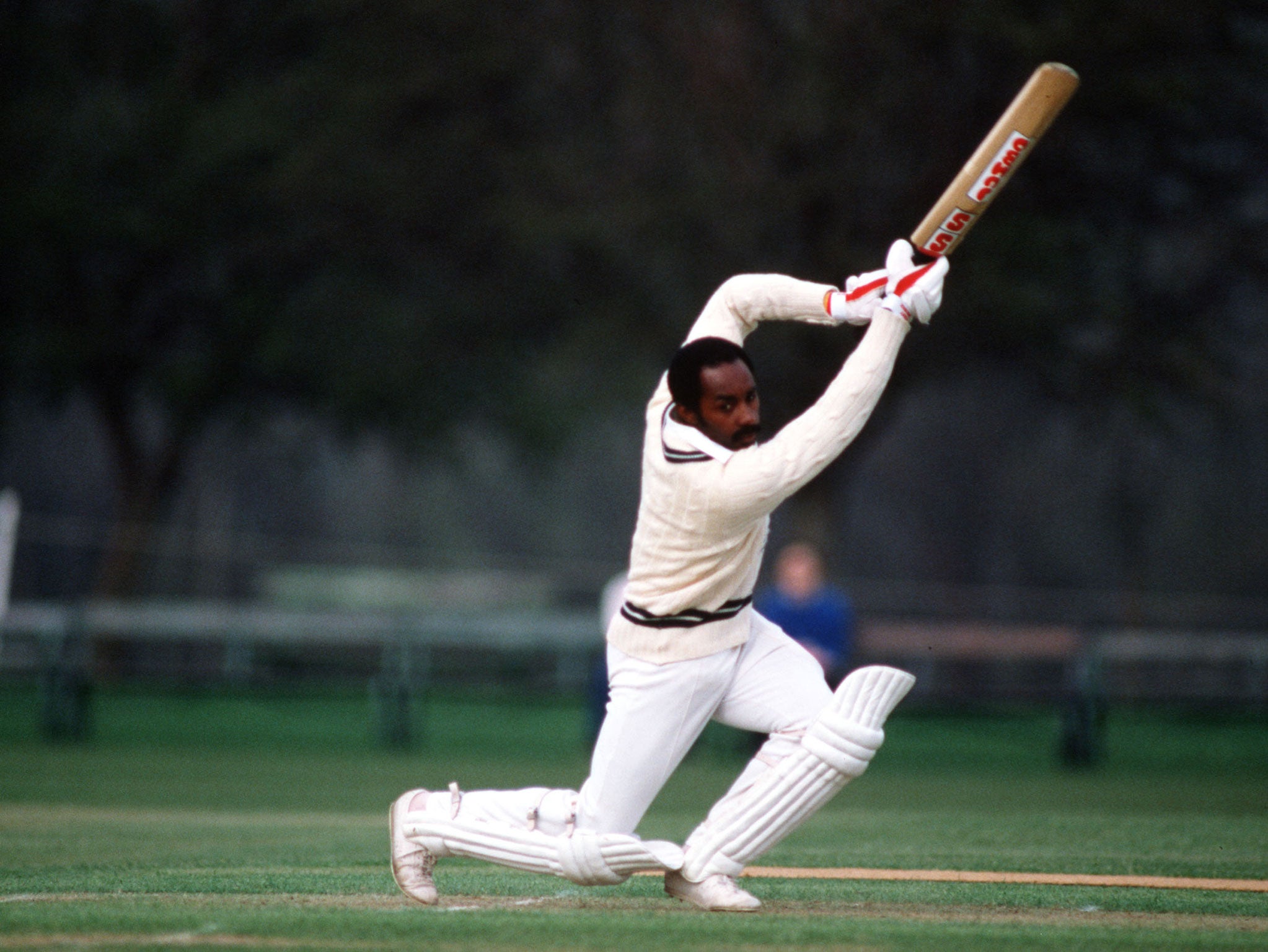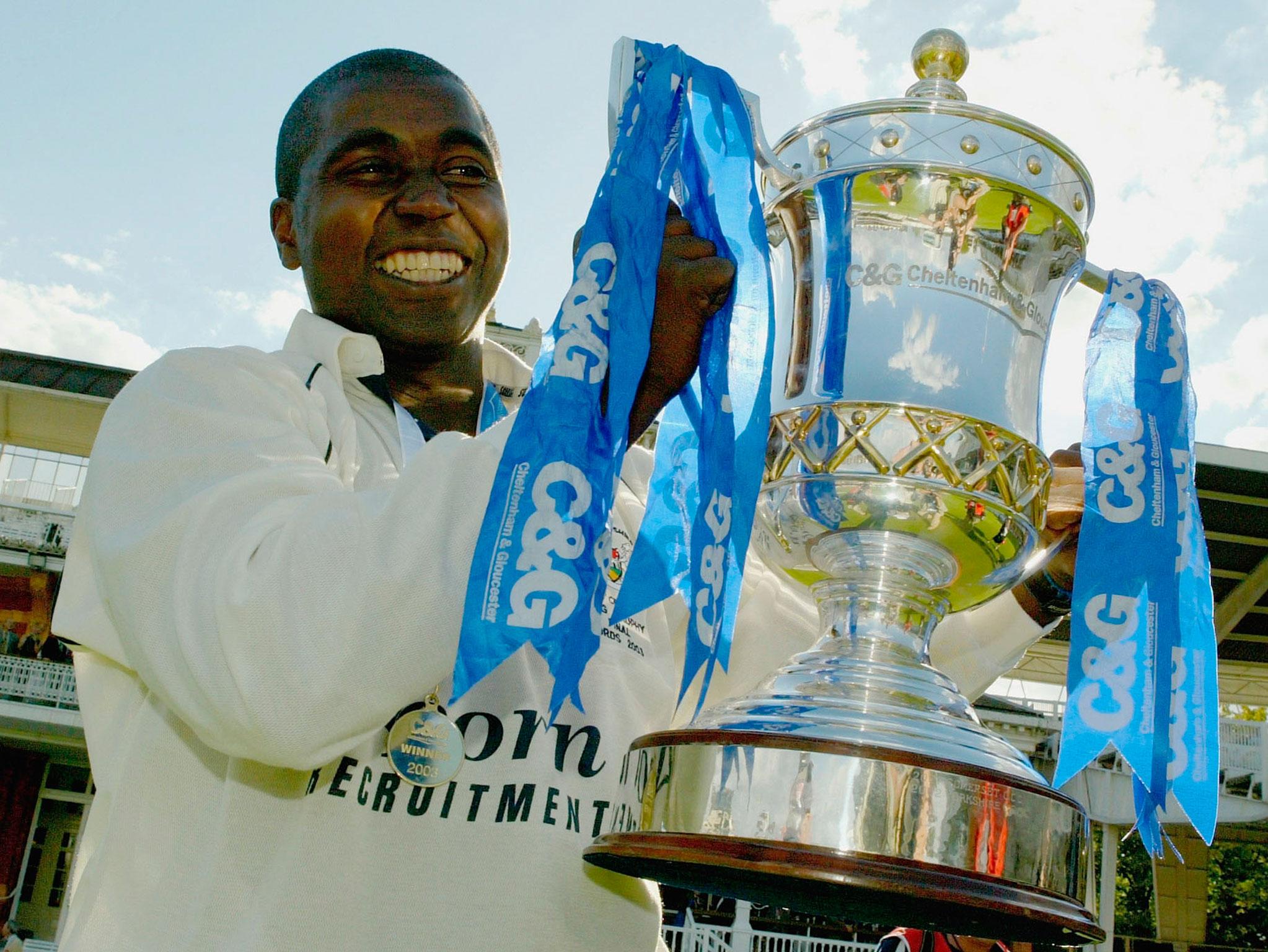Vikram Solanki's appointment an exception to the rule, with cricket continuing to spurn minority coaches
Solanki, who has been installed as Surrey's deputy head coach, will be very much an anomalous figure when the county season begins in April

Your support helps us to tell the story
From reproductive rights to climate change to Big Tech, The Independent is on the ground when the story is developing. Whether it's investigating the financials of Elon Musk's pro-Trump PAC or producing our latest documentary, 'The A Word', which shines a light on the American women fighting for reproductive rights, we know how important it is to parse out the facts from the messaging.
At such a critical moment in US history, we need reporters on the ground. Your donation allows us to keep sending journalists to speak to both sides of the story.
The Independent is trusted by Americans across the entire political spectrum. And unlike many other quality news outlets, we choose not to lock Americans out of our reporting and analysis with paywalls. We believe quality journalism should be available to everyone, paid for by those who can afford it.
Your support makes all the difference.Last week a rare thing happened in English cricket – a coach who wasn’t white was employed in a top role.
Vikram Solanki, the former England one-day opener, was installed as Surrey’s deputy head coach, taking over from the departing Stuart Barnes who had been at the Oval since arriving from Gloucestershire in 2012.
Solanki, though, will be very much an anomalous figure when the county season begins in April.
Whereas plenty has been made of the marginalisation of black and Asian coaches in the highest levels of English football, little has been said about the almost entirely white make-up of their equivalent within the 18 teams involved in Division One and Two of County Championship.

Indeed, Solanki will be the only full-time non-white coach across almost 80 roles in a competition that now reflects the ever-dwindling number of young black cricketers attracted to the sport here in England.
A black coach who worked in the county game last season told The Independent that there was now a reluctant acceptance of just how difficult it was to break into the county game for black coaches everywhere.
Job applications were sent more in hope than expectation.
Phil DeFretais, the former England all-rounder, has spent time working at both Derbyshire and Nottinghamshire as a part-time bowling coach and points to the lack of black role models as a possible reason for why the make-up of backroom staff in county cricket is almost 100 per cent white.
“I grew up watching the likes of Norman Cowans, Wilf Slack and Roland Butcher at Middlesex,” he says. “A lot of young black kids were also inspired by the likes of Cyrille Regis scoring goals at West Brom and, of course, the West Indies side, which pretty much thrashed everyone they played.”
An entire generation of young black cricketers has largely been lost to the game in the intervening period, with the likes of Michael Carberry and Daniel Bell-Drummond now rarities in the English game.
It figures that if the number of black cricketers playing the game dwindles then so will the number of black coaches but the reality is that coaching staff in county cricket merely reflect the homogenous make-up of club hierarchies, with Wasim Khan at DeFreitas’ old county Leicestershire becoming the first non-white chief executive in the history of the Championship in 2014.
No counties have followed Leicestershire’s ground-breaking lead.
Roland Butcher, the first black cricketer to win an England cap back in March 1981, recently described the lack of black coaches in the County Championship as ‘astonishing’, and it’s hard not to agree.
“We’re in 2018, you’ve got 18 First Class counties and there is not one black coach considered good enough to be in a position like that,” he said.

“For me, that’s hugely disappointing and it’s something that I would like to see change.
“I would like to see some young black coaches, or any black coaches, striving to be good enough to really get into that profession.
“It’s sad that in 2018 you cannot find one.”
For his part, DeFreitas believes, or at least heartily hopes, that the shortage has nothing to do with skin colour.
“Personally, I don’t look at it that way,” he says. “It’s 2018, and if that was the case then what kind of state is the sport really in. I think a lot is about coach insecurity, they want coaches around them that they’re comfortable with.”
Mark Alleyne and Alex Tudor, both England internationals, are currently coaching at private schools, with the former arriving at Marlborough following a stint as head coach of MCC Young Cricketers. Neither, though, have been handed an opportunity in county cricket.

The Professional Cricketers Association (PCA) insist that they’re doing all they can to offer cricketers, black and white, a future in the game after they’ve finished playing.
The ECB, meanwhile, point to their £450,000 investment into improving diversity in the game back in 2015, as evidence of their determination for the sport to more accurately reflect the make-up of society.
“We’ve doubled our investment in our partnership with Chance to Shine and their Street programme is seeing a new generation of BAME coaches coming through,” said a spokesman.
“Accessibility to facilities for kids to play in inner-city areas is vital. We funded 23 non-turf pitches in inner cities that were up and running for the 2017 season and will have 80+ further non-turf pitches built in time for the 2018 season across eight cities.
“To complement that we’ve rolled out All Stars Cricket, which is the national entry-level programme for kids aged five to eight, and that’s about creating outstanding experiences for them and their parents – over 37,000 took part last year.”
Solanki has been handed his after impressing at the Oval since calling time on his playing career in 2014.
The hope must be that others follow his lead.
Join our commenting forum
Join thought-provoking conversations, follow other Independent readers and see their replies
Comments